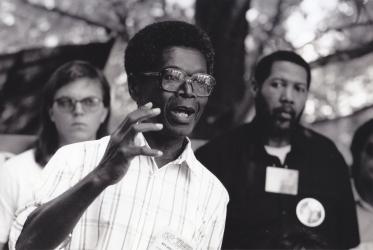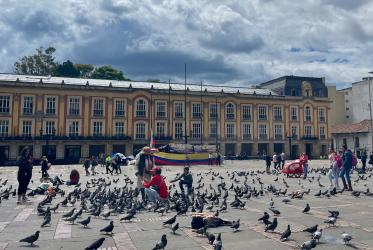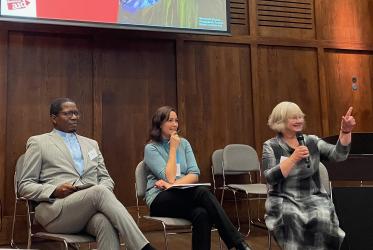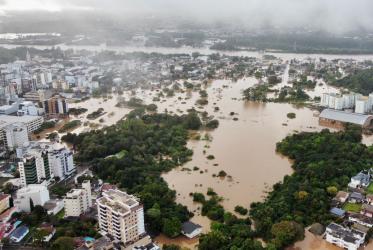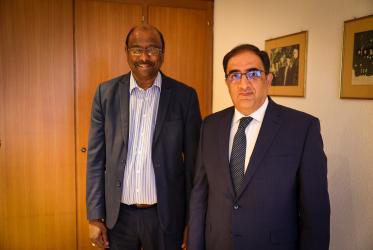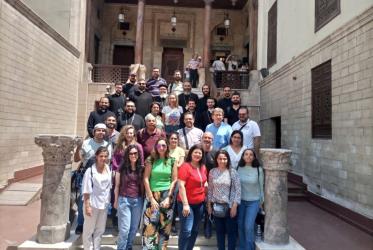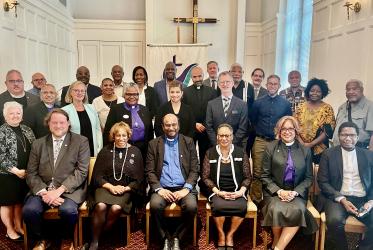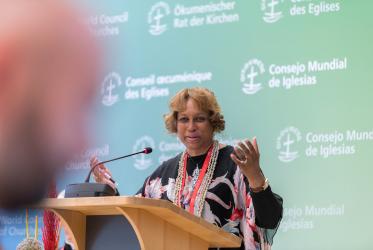Displaying 1 - 20 of 291
11 April 2024
South Sudan churches share Easter messages of hope
04 April 2024
WCC expresses deep concern for human rights in Haiti
28 March 2024
WCC backs extension of ceasefire in Colombia
18 January 2024
As floods rage in eastern Africa, church acts to save the people
22 November 2023
WCC president from Europe reflects at Christian Aid assembly
21 November 2023
Ahead of Her Time
Pan-African Women of Faith and the Vision of Christian Unity, Mission, and Justice
01 November 2023
In wake of floods in Brazil, WCC expresses concern and solidarity
09 September 2023




